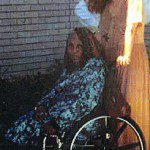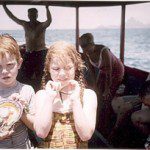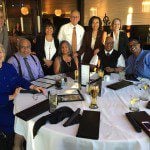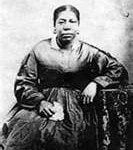(During some Passover celebrations, Jews drop bits of wine on a napkin, citing each plague which G-d caused to come upon the Egyptians and saying, “Dayenu!”, or “it would have been enough with only that!”)
In 1998, when I was beginning to learn about black pioneers, Susie Mae Thomas started coming to my ward, though she didn’t live in my boundaries. In retrospect, her presence was a miracle for me. Though she couldn’t speak because of a stroke, she was my first guide into the race issues and history I would learn, and my first teacher about the strength and soul of a black woman.
For me personally, Dayenu! It would have been enough if I had only met Susie and received no greater blessing. She, who had lost two sons, understood me in a way nobody else did when my own sons were becoming lost in other ways.
At that time, we had “Official Declaration 2”, which stated that “all worthy males” could be ordained to the priesthood. The actual message was that men of African descent, who had been restricted from priesthood since 1852 were no longer restricted, and that men and women of African descent could participate in temple ordinances. That became particularly significant as I was with Susie in the temple when she was endowed–and that I saw the man who would be my co-author, Darius Gray, there as well. I had met him two days before that temple session, and our partnership was already beginning. We ended up writing three books about black history, making three documentaries, and flying all over the nation to do presentations on the things we were learning, as well as on genealogy, since Darius had (with Marie Taylor) headed the Freedman Bank Project, an eleven year work that provided digitized names of all freed slaves who had put their money in the bank. They identified themselves by their family relationships, and so many ex-slave depositors gave four generations of names.
Dayenu. It would have been enough if Darius and Marie had produced this “Rosetta stone of African American genealogy” and no further blessings had been granted.
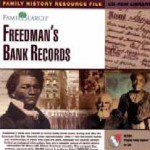
I had learned all of the folklore surrounding the priesthood restriction, and had been instructed by racists who didn’t recognize that taint on their souls. Any questions we had about the priesthood restriction were answered with, “The declaration speaks for itself.” But it didn’t say much, and the awful speculations continued, suggesting absurdities like lineage curses and pre-mortal neutrality of spirits who would take on black bodies. I always sensed that these supposals were false. I dropped out of seminary after my seminary teacher declared that the priesthood restriction was in place because “N–ers” were inferior.
Soon after I met Darius, he had a revelatory experience teaching him what he calls “Not a curse but a calling” detailed (a little) here.
Dayenu. It would have been enough if Darius had received those insights and shared them with me and with others, and no other blessings had come.
In 2006, Darius corresponded with President Hinckley about his concerns for Latter-day Saints of African descent, who were facing the false assumptions promulgated by the idea that no more would be said about the priesthood restriction or its removal, so all that had been said–almost all of it ugly–was still in the conversation. President Hinckley made a marvelous statement at the next conference, April 2006:
I remind you that no man who makes disparaging remarks concerning those of another race can consider himself a true disciple of Christ. Nor can he consider himself to be in harmony with the teachings of the Church of Christ. How can any man holding the Melchizedek Priesthood arrogantly assume that he is eligible for the priesthood whereas another who lives a righteous life but whose skin is of a different color is ineligible?
Darius left me a voicemail message in a tearful voice: “He did it. President Hinckley spoke directly to the issue.”
Dayenu. It would have been enough for us to receive those words and no other blessing.
In 2008, Darius Gray and I released our documentary, after showing it to many in the Church Office Building. It included an account of an apology from President Hinckley to Pastor Cecil Murray (shown in the trailer here). Our books had already been released. We were able to contribute scholarly articles to journals and encyclopedias, and were often invited to speak to inter-denominational crowds.
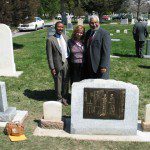
In 2011, the Church put out a statement in response to a BYU religion professor, who was citing the old supports for the restriction. After stating outright that the professor did not represent the church’s position, the statement said: “For a time in the Church there was a restriction on the priesthood for male members of African descent. It is not known precisely why, how, or when this restriction began in the Church…The Church is not bound by speculation or opinions given with limited understanding. We condemn racism, including any and all past racism by individuals both inside and outside the Church.”
It seemed to suggest that God instituted the restriction for unknowable reasons, but it was nonetheless the closest thing we had to a repudiation. Dayenu!
Almost a year to the day after that statement, a new preamble was added to “Official Declaration 2”–the “priesthood revelation”:
The Book of Mormon teaches that “all are alike unto God,” including “black and white, bond and free, male and female” (2 Nephi 26:33). Throughout the history of the Church, people of every race and ethnicity in many countries have been baptized and have lived as faithful members of the Church. During Joseph Smith’s lifetime, a few black male members of the Church were ordained to the priesthood. Early in its history, Church leaders stopped conferring the priesthood on black males of African descent. Church records offer no clear insights into the origins of this practice. Church leaders believed that a revelation from God was needed to alter this practice and prayerfully sought guidance. The revelation came to Church President Spencer W. Kimball and was affirmed to other Church leaders in the Salt Lake Temple on June 1, 1978. The revelation removed all restrictions with regard to race that once applied to the priesthood.
The progress was monumental. Dayenu!
And yet I was painfully aware that many would not count themselves as needing repentance for racism since they didn’t use the “n” word. The idea of God’s timetable was prominent, suggesting that God’s method of keeping a particular schedule would prevent some of His children from receiving the priesthood. (Generally, the work of spreading the gospel goes demographically, as nations’ laws permit missionary work and as the people in those nations become prepared. The idea that the priesthood restriction was God’s modus operandi for maintaining a timetable implies not just a nation but a lineage, and maintains the anachronistic idea of an ancestral curse.) And the “curse of Cain” continued to appear–even in discussions among young Mormons.
And then this, on Friday December 6, 2013, in the midst of Nelson Mandela’s funeral plans. The statement appears on LDS.org .
I have listed events but not even a tenth of the miracles I’ve seen over the past sixteen years as I’ve witnessed a wave of understanding cresting, and have been introduced to team members of all complexions and throughout the world, each devoted to bringing all of us into unity in Christ. Perhaps someday I’ll try to make a list of the miracles. The statement released on Friday is miraculous to me, given what I’ve perceived as missing from previous statements.
It contextualizes the priesthood restriction within the cultural prejudices of its time, implying that it was culture, not God, which set the restriction.
It addresses legal slavery in Utah, which many today are unaware of, and shows it in contrast to Joseph Smith’s views.
It thoroughly repudiates the “curse of Cain” idea, as well as other speculations.
It addresses the gradual rescinding of the restriction in various dark-skinned communities, and alludes to the complexities of restricting priesthood from a particular lineage in a world where many if not most are of “mixed blood.”
There are no statements of “we don’t know why the restriction was put into place.”
There is a strong affirmation that excluding one race of people from any of Christ’s blessings is counter to Christ’s basic teachings. “The Church proclaims that redemption through Jesus Christ is available to the entire human family on the conditions God has prescribed. It affirms that God is ‘no respecter of persons’ and emphatically declares that anyone who is righteous—regardless of race—is favored of Him.”
Dayenu! As we realize that all good things come to us by grace, and that we ourselves may be instruments of grace, each small, good thing must be seen as a miracle, to be celebrated. If our filter is shadowed by cynicism or impatience, we might miss the joy intended for us–just around the next bend.
True, there is not a direct apology in the new statement. I will express my own. I have written it in the afterward to the updated version of the book Darius and I wrote titled The Last Mile of the Way.
As we tell the stories of these remarkable Latter-day Saints—and now re-tell them with more information—we stand in awe at their faith, and bow in sorrow at how badly we served them. The descendants of these black pioneers left the religion their predecessors valued so deeply, though a few independently converted to Mormonism without realizing that the legacy of the early black members was in their own bloodlines.
We continue to be inspired by the subjects of these books, and we long for the day when we are truly our brothers’ and sisters’ keepers, serving wherever we can and using our talents without exclusion or classism to glorify our Lord.
As we Mormons extricate ourselves from the tangle of teachings which justified racism, we may indeed become the singular group which models the abandonment of prejudice, and we may invite study by scholars researching how any religion or any society turns itself towards a new and more enlightened position; how it re-trains its community and transcends its past.
Hosanna. Praise be to Him who made the lights to shine.


